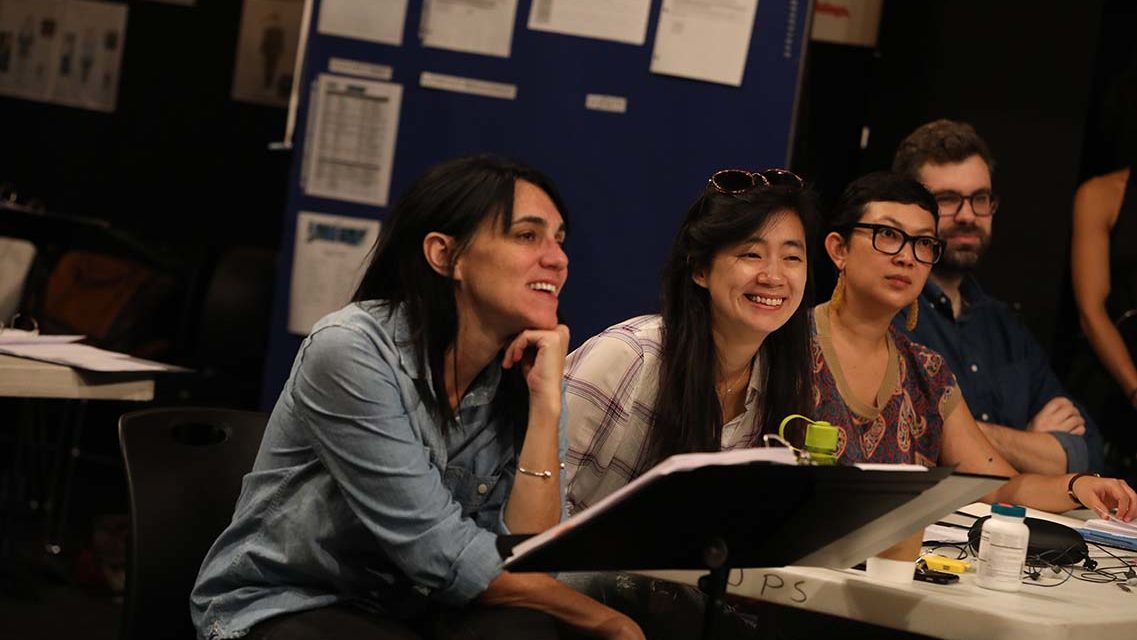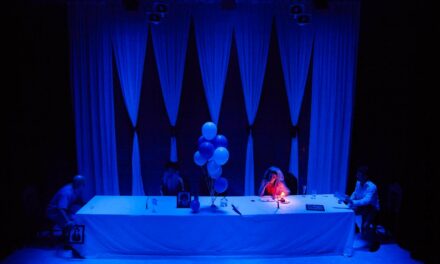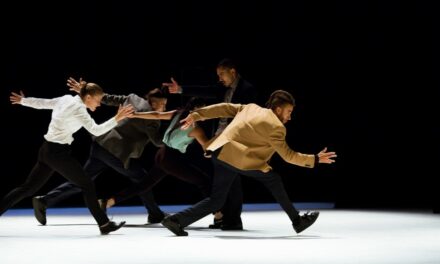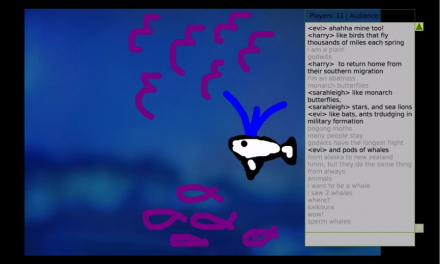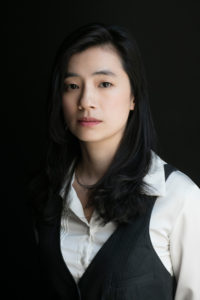
Photo Credit: Beowulf Sheehan
Hansol Jung is a playwright and director from South Korea. Her plays include Wild Goose Dreams (La Jolla Playhouse, Public Theater), Cardboard Piano (Actors Theater of Louisville), Among the Dead (Ma-Yi Theater Company), and No More Sad Things (Sideshow and Boise Contemporary). Hansol received her M.F.A. in Playwriting from Yale School of Drama and is a member of the Ma-Yi Writers Lab and Usual Suspects at NYTW.
Walter Byongsok Chon: First, congratulations on the successful run of Wild Goose Dreams at the Public Theater (10/30/18.~ 12/16/18)! I watched it on 12/15/18, and, as a Korean myself, was happy to see a story that is so specifically Korean meet audience in New York City. The settings of the comic book café, PC Café, Karaoke, and Gosiwon (studio apartment made specifically for students preparing for civil service exams) made me very nostalgic because those are such integral parts of life for anyone living in Korea. How do you feel now, having experienced a successful run at the Public Theatre?
Hansol Jung: Like I was in labor for four years and the baby got born and was very pretty and then promptly left home as soon as I said, “Hello, pretty baby!”
Chon: Considering Wild Goose Dreams’ specific Korean content and setting, what was it like seeing American audiences’ enthusiastic response? What do you think made this play connect with the audiences here?
Jung: It was crazy. Acceptance is a drug and I am now a junkie.
I was very moved to witness non-Koreans and Americans connect with this very Korean side of my work. Ultimately, Wild Goose Dreams is about aspirations and how those aspirations could cut us off from our family and original society. It is a story that resonates with New Yorkers, many of whom have left their original society to follow their aspirations.
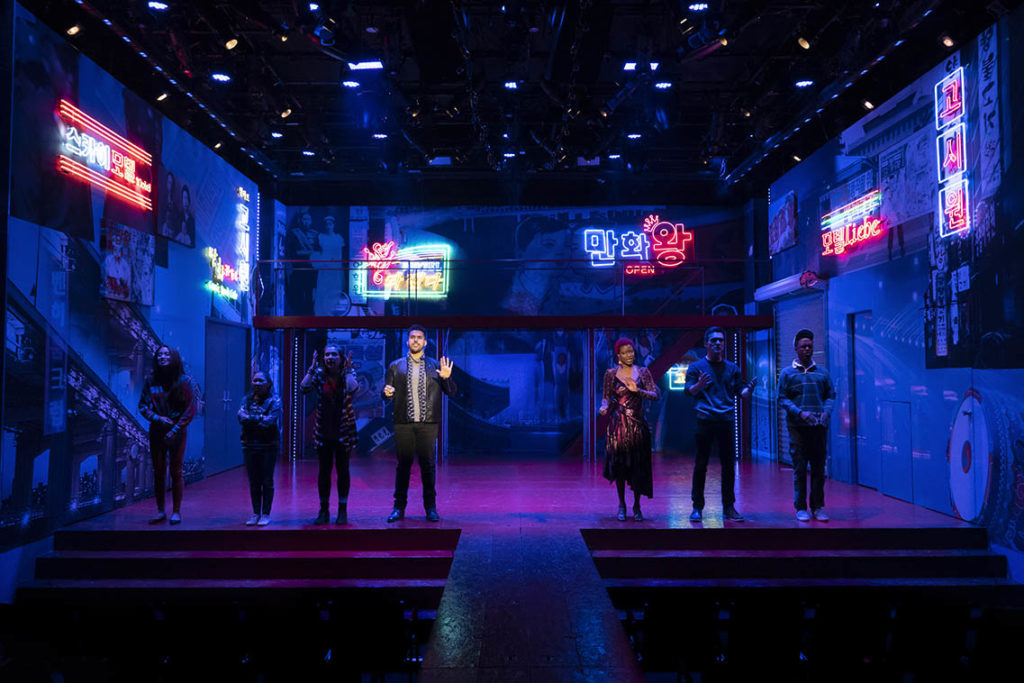
Wild Goose Dreams Company at The Public Theater. Photo credit: Joan Marcus
Chon: You portray a variety of topics in your plays, such as the love story between a North Korean defector and a “Goose Daddy” in South Korea (Wild Goose Dreams), a story of two lesbians in Uganda fighting for their love against a society that does not accept homosexuality (Cardboard Piano), and a story about a Korean boy adopted by a lesbian couple (Wolf Play), all wildly imaginative and theatrical. Could you share: what draws you to certain topics and stories, and what inspires you to write about them?
Jung: I like to populate the play-world with characters that we don’t see together very often. I don’t think I ever think, “this is the issue I wish to talk about.” The topics are brought out by these characters from different worlds trying to find a way to be in the same world.
Chon: You have a background in musical directing from Penn State and also worked extensively as a translator of musicals from English to Korean, many of which were produced successfully in Korea. How does your background and experience in musical theatre influence your playwriting?
Jung: I translated a lot of the Musical Theater canon into Korean in my twenties. A lot of what I know about story structure and plot rhythms come from that time of in-depth, line-by-line scrutiny of those theatrical works. I also have a hard time writing plays that don’t have songs in them…so that’s probably an influence, too.
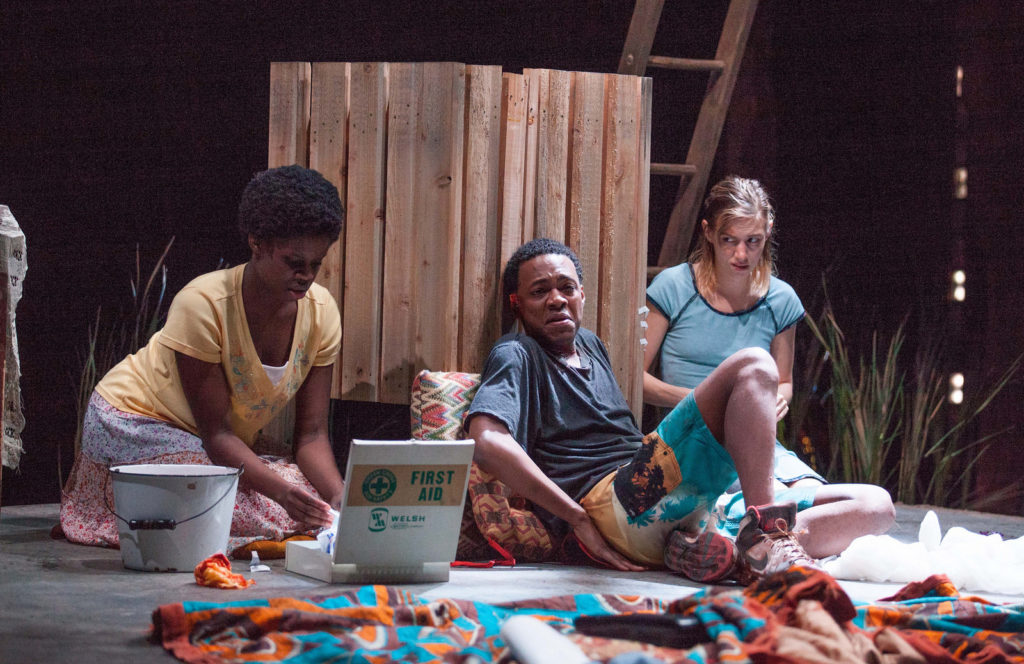
Nike Kadri, Jamar Williams, Briana Pozner in Cardboard Piano, directed by Leigh Silverman. 2016 Humana Festival of New American Plays (Actors Theatre of Louisville). Photo credit: Bill Brymer.
Chon: If you could choose 3 plays that have had the biggest influence on your growth as a playwright, which would they be? How did they influence and inspire you?
Jung: How I Learned to Drive by Paula Vogel. Whenever I’m trying to find a theatrical container for a story, I’m thinking about Paula’s structural emotional use of the Driving manual.
Our Town by Thornton Wilder. Less is more. Less is more. Until that moment the emotional dam spills, exactly when I didn’t know it was coming but needed it to.
Yellowman by Dael Orlandersmith. The way a body speaks is the musicalization of what the body has been through, believes and dreams of.
Chon: How do you communicate with other cultural forms such as music, film, TV, and art? How do these inform and inspire you? Are there any particular examples that have had a major impact on your growth as a playwright?
Jung: I go to film and TV for diversions after a project is done. I go to music and art for fuel while trying to build plays. I think it has something to do with how music and art don’t use words to express themselves.
I listen to a lot of pop songs on repeat when drafting. Cardboard Piano was written to 1000+ playbacks of Let It Go from Frozen. Wild Goose Dreams was written to 1000+ playbacks of 2NE1’s UGLY and Fedrale’s Tribe. I probably need the adrenalin to keep the juices flowing.
Chon: It has been almost five years since you graduated from Yale School of Drama with an M.F.A. in Playwriting, and, since then, your plays have been produced all across the country. How would you describe your journey as a playwright from South Korea paving your way in the U.S. theatre scene?
Jung: This is a massive question. And I’m still on the journey, so hard to say? I think it’s always walking the tension of: I’m not American. Why do I have so much to say to Americans?
Chon: In your experience, how would you characterize the difference between the theatre scene in South Korea and that in the U.S.? What makes the U.S. theatre scene appealing to you?
Jung: I was too young and very exposed to the commercial theatre in Korea. I am in a much more artist-driven situation in the States. I can’t really compare.
Chon: Which of your own plays helped you grow as a writer the most? Is there any one play of yours that is particularly meaningful to you?
Jung: After writing Cardboard Piano I got a tiny taste of what it is like to “build” a play versus “writing” it. I had written 16+ drafts of it in one year, during the third year of grad school. Somehow I started on a sort of rigor and obsessive need to cut and cut till I got to the thing that rang true to me. I learned how to be my own critic because in the writing of the play I learned what the “ping” feels like when I get something right.
Chon: In the past decade particularly, the U.S. theatre scene has seen more and more productions of plays written by Korean or Korean-American artists, such as Young Jean Lee, Lloyd Suh, Julia Cho, Jihae Park, Celine Song, and yourself. How do you see Korean-descent artists contributing to the theatre scene in the U.S.?
Jung: Same as what everyone else is. Their own unique perspective of being in this amazing mixture of varying cultures, histories, and needs.
What’s exciting is that until a few decades ago, American theatre was afforded only a handful of perspectives on what it meant to be human. And we are now in a time of abundance where we are afforded many more.
Chon: More recently, Korean culture has also made an impact in the U.S. in the form of K-pop, with the musical KPOP (a co-production by ArsNova, Woodshed Collective, and Ma-Yi Theater Company, 2017), and the phenomenal success of the K-pop group BTS. More and more Korean films are also getting recognition across the U.S., such as Lee Chang-Dong’s Burning (2018) and Park Chan-Wook’s The Handmaiden (2016). How do you feel about the increasing popularity of Korean culture in the U.S.?
Jung: Awesome. My country rocks.
Chon: Could you share what new stories you are working on now? A teaser for your next stage play? I hear there is also a Netflix show?
Jung: I’m working on a musical adaptation of Dave Eggers’ novel, The Circle, with composers Tim Phillips and Marc Teitler at the National Theater in the UK with director Michael Boyd.
The Netflix show is a reboot of Tales Of The City. It’ll drop in the summer, so stay tuned!
Chon: Thank you for your time for this interview! I look forward to your next projects!
Learn more about Hansol Jung from her interview with American Theatre: https://www.americantheatre.org/2018/11/08/lost-and-found-with-hansol-jung/
This post was written by the author in their personal capacity.The opinions expressed in this article are the author’s own and do not reflect the view of The Theatre Times, their staff or collaborators.
This post was written by Walter Byongsok Chon.
The views expressed here belong to the author and do not necessarily reflect our views and opinions.

